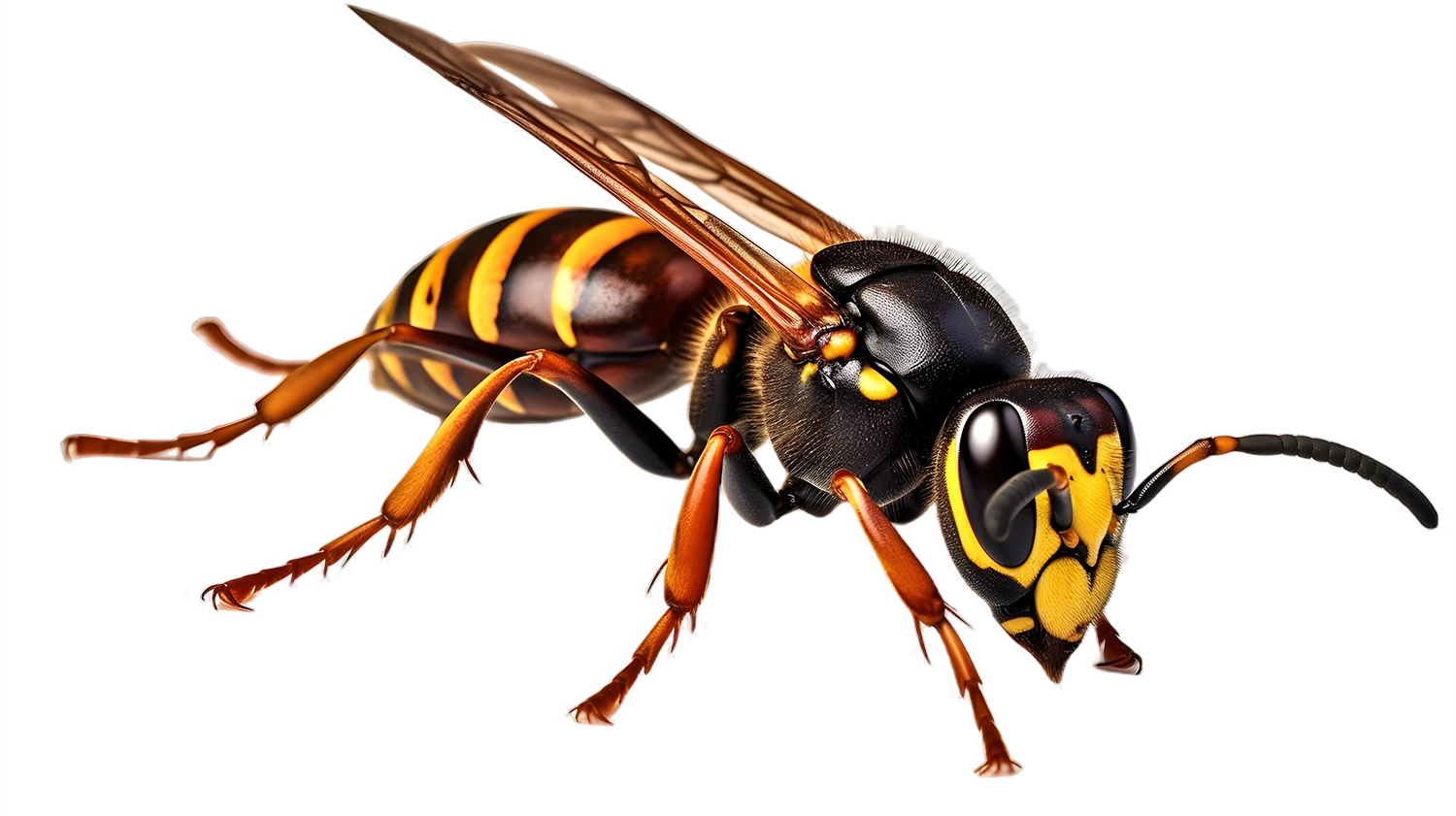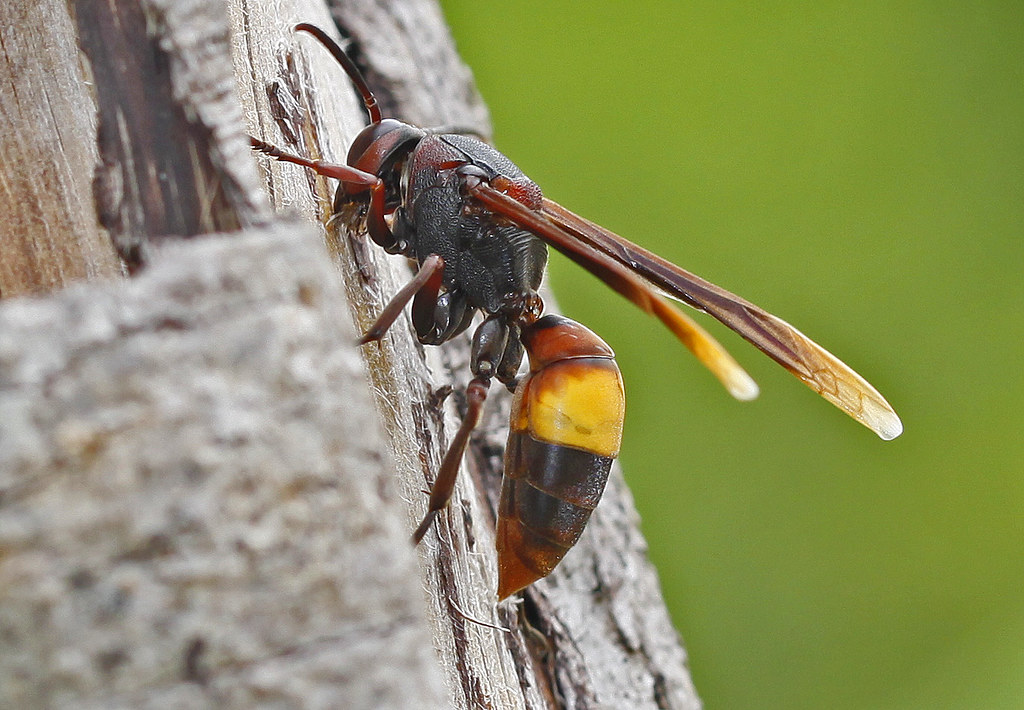
Hornet
Common Name: Hornet, Giant Wasp, Vespa
Size: 2 – 5.5 cm
Life Span:
Workers: 2 – 4 weeks
Queens: Up to 1 year
Workers: 2 – 4 weeks
Queens: Up to 1 year
Hornets are large, social wasps belonging to the genus Vespa. They are known for their aggressive nature and painful stings. With their robust bodies, broad heads, and powerful mandibles, hornets are among the most formidable flying insects. Their coloration varies by species, but many have yellow, orange, and black patterns, serving as a warning to predators.
Hornets live in highly organized colonies, with a caste system that includes a queen, workers, and drones. The queen establishes the nest in early spring, laying eggs that hatch into larvae, which then develop into worker hornets. These workers take over the nest-building and foraging duties while the queen continues to lay eggs. By late summer, the colony reaches its peak, housing hundreds to thousands of hornets.
Hornet nests are made of a paper-like substance, created by chewing wood fibers mixed with their saliva. These nests are often built in trees, attics, sheds, or underground cavities. Unlike bees, hornets can sting multiple times without dying, injecting venom that causes intense pain and allergic reactions in some individuals.
While hornets help control pest populations by feeding on other insects, they can become highly aggressive if their nest is disturbed. Their powerful sting, swarming behavior, and ability to spray venom make them dangerous pests when they establish nests near human activity. Controlling hornet populations is necessary to prevent painful stings and potential allergic reactions.
As pest
Hornets are a significant nuisance due to their aggressive nature and painful stings. Unlike bees, they can sting multiple times, injecting venom that causes swelling, redness, and intense pain. For individuals allergic to insect venom, a hornet sting can trigger severe reactions, including anaphylaxis, which requires immediate medical attention.
One of the main reasons hornets become pests is their tendency to build nests near human dwellings. They commonly establish nests in tree branches, wall cavities, attics, and even underground burrows. This proximity to human activity increases the risk of accidental encounters, leading to painful stings.
Hornets are highly territorial and will defend their nests aggressively. If they perceive a threat, they attack in swarms, making removal dangerous without professional help. Their presence can make outdoor spaces unusable, especially in late summer when their populations peak.
Besides harming humans, hornets pose a threat to honeybee colonies. Some species, like the Asian giant hornet, actively prey on honeybees, destroying entire hives and threatening local pollination. Their predatory behavior disrupts the balance of ecosystems, making them a problem for both homeowners and farmers.

How to control
Effective hornet control requires caution, as disturbing their nest can provoke aggressive attacks. The first step in control is prevention. Sealing cracks, crevices, and gaps in walls, roofs, and attics helps prevent hornets from nesting near homes. Removing food sources, such as exposed garbage and sugary drinks, also reduces their attraction to human environments.
If a hornet nest is spotted early, it may be possible to remove it before the colony grows. Small nests can sometimes be knocked down at night, when hornets are less active, using protective gear. However, for large nests or nests in difficult-to-reach areas, professional pest control services are recommended.
Using insecticidal sprays designed for wasps and hornets can help eliminate active nests, but these should be applied with caution and from a safe distance. Insect traps, bait stations, and decoy nests can also help deter hornets from settling in the area.
For severe infestations, hiring a pest control expert is the safest option. Professionals use specialized equipment and protective gear to remove nests safely and effectively. Regular inspection of outdoor spaces and early intervention are the best ways to manage hornet populations and prevent dangerous encounters.

